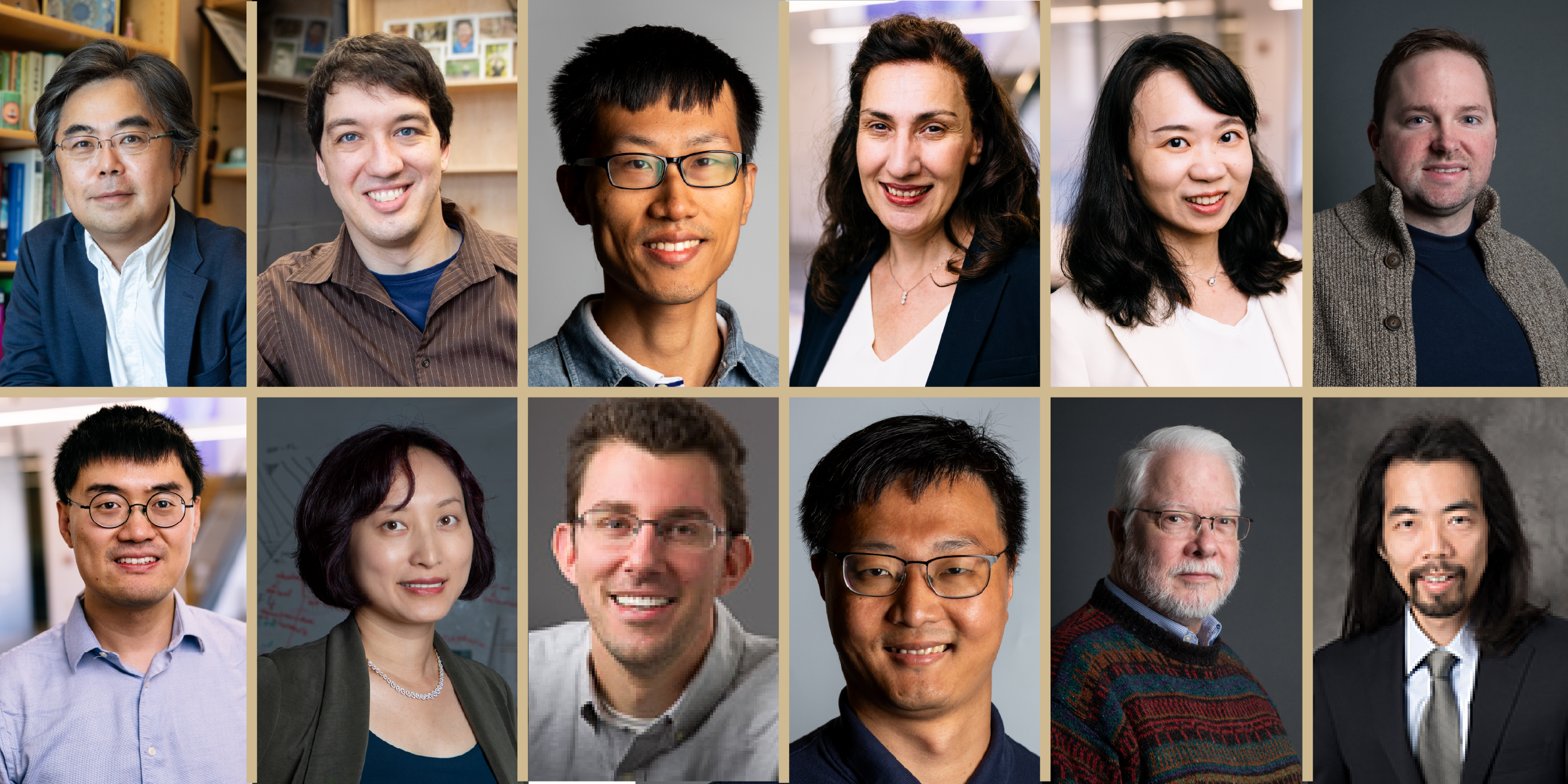Purdue Biological Sciences launches Genomics, Multiomics & AI Research Area
10-17-2025

Purdue University’s Department of Biological Sciences has announced the launch of a new research unit, the Genomics, Multiomics & AI (GEM-AI)Research Area, bringing together the power of data, biology, and computation to advance understanding of life at its most fundamental levels.
As biology becomes increasingly data-driven, GEM-AI aims to lead the way in exploring how genes, molecules, and systems interact to shape health, disease, and evolution. The new research area unites faculty who use both experimental and computational approaches to analyze massive biological datasets- work that is transforming everything from disease diagnosis to drug discovery.
“Modern biology produces an unprecedented amount of data,” said Peristera Paschou, head of the Department of Biological Sciences and a member of GEM-AI. “The ability to make sense of that data requires new technologies and new ways of thinking. By combining genomics, multiomics, and artificial intelligence, we can move beyond individual genes to understand biology as a whole system.”
Understanding life through data
At its core, GEM-AI focuses on integrating three powerful approaches. Genomics examines the complete set of genes- how they are structured, how they evolve, and how they influence traits and disease. Multiomics expands that view by layering additional types of biological information, such as RNA, proteins, and environmental factors, to reveal how these systems interact. Artificial intelligence (AI) brings the computational strength needed to analyze these enormous datasets, detecting patterns and relationships that humans might otherwise miss.
“Today, we can measure millions of genetic variants across humans and other species, or track the expression of every RNA and protein within a single cell,” said Geyu Zhou, assistant professor of biological sciences and convener of GEM-AI. “The challenge lies in connecting all those pieces. AI allows us to uncover hidden patterns, predict how genetic variations influence health, and identify new possibilities for treatment.”
Faculty expertise and focus
The GEM-AI research area currently includes 12 faculty members, with expertise spanning human genetics, population genetics, microbiology, cancer biology, computational genomics, and structural biology.
Members of the group use cutting-edge experimental and computational tools to tackle diverse research questions. Faculty study human genetics to better understand disease mechanisms and genetic diversity (Geyu Zhou, Boran Gao, Peristera Paschou, Yuk Fai Leung); explore population genetics and evolution to trace how genetic variations arise and influence populations over time (Brian Metzger, Mark Christie, Qixin He); and investigate microbiology to reveal the roles of microbial communities in health and the environment (Tong Wang).
Other members focus on cancer biology and computational genomics (Weiruo Zhang), develop methods for large-scale sequence analysis (Michael Gribskov), study stem cell biology and translational genomics to advance clinical applications (Matt Tegtmeyer), and examine structural biology to reveal how molecular architecture underlies protein function (Daisuke Kihara).
“GEM-AI reflects the strengths of our department- scientists who are both innovators in computational technology and leaders in biological discovery,” said Boran Gao, assistant professor of biological sciences and deputy convener of GEM-AI. “We’re not only developing new tools but also applying them directly to understand fundamental processes that impact human health.”
A hub for collaboration
Collaboration lies at the heart of GEM-AI’s mission. Faculty in the group are deeply connected across Purdue’s colleges and research institutes, contributing to interdisciplinary efforts that link data science, life science, and artificial intelligence.
“Our work aligns closely with Purdue Computes, which drives advances in computing and data science across the university,” Paschou said. “GEM-AI also plays an integral role in Purdue’s One Health initiative, reflecting the interconnectedness of human, animal, and environmental health. We’re excited to bridge these efforts and strengthen Purdue’s leadership in AI-powered life sciences.”
Several GEM-AI faculty members hold joint appointments in Statistics and Computer Science, underscoring the department’s commitment to cross-disciplinary research. The group will also engage closely with several Purdue Life Sciences Institutes as well as Purdue’s Institute for Physical AI, where researchers use artificial intelligence to accelerate innovation in physical and biological systems.
Beyond campus, GEM-AI seeks to develop partnerships with industry and other academic institutions. By connecting fundamental research with practical applications, the group aims to translate discoveries into real-world solutions that improve human health and quality of life.
Looking ahead
The launch of GEM-AI marks a strategic step forward for Purdue Biological Sciences and the university’s broader vision for the life sciences. With continued investment in AI and data-driven discovery, Purdue expects this area to grow in both size and impact. Eleven additional faculty hires are anticipated across departments this year in AI for the life sciences, further expanding opportunities for collaboration.
“GEM-AI represents the future of biological research,” Paschou said. “Our ability to understand and apply biological data will shape how we address global challenges in health, disease, and sustainability. Purdue is uniquely positioned to lead in this space.”
Through the convergence of genomics, multiomics, and AI, the Department of Biological Sciences is advancing a new era of discovery- one that embraces complexity, connects disciplines, and empowers scientists to better understand life in all its dimensions.
About the Department of Biological Sciences at Purdue University
The Department of Biological Sciences is the largest life sciences department at Purdue University. As part of Purdue One Health, we are dedicated to pioneering scientific discoveries and transformative education at the cutting edge of innovation. From molecules to cells, from tissues to organisms, from populations to ecosystems- we bring together multiple perspectives, integrating across biological scales to advance our understanding of life and tackle the world’s most pressing challenges. Learn more at bio.purdue.edu/.
Writer: Alisha Willett, amwillet@purdue.edu
Source: Peristera Paschou, ppaschou@purdue.edu
Geyu Zhou, zhou1633@purdue.edu
Boran Gao, gao824@purdue.edu